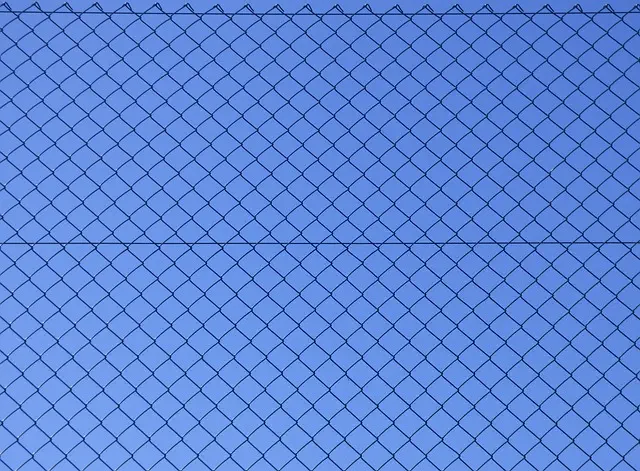Muscle soreness after exercise results from micro-tears in fibers and adaptation, with intensity, duration, and type of workout influencing it. While quick relief may seem appealing through over-the-counter drugs or local kratom stores, holistic approaches like rest, nutrition (including protein), and professional mobility exercises offer lasting solutions. Exercise boosts blood flow to flush metabolic waste and deliver nutrients for repair, with low-impact cardio and stretching particularly effective. Personalized workout routines tailored by professionals consider individual needs, avoiding generic plans. Stretching enhances flexibility, blood circulation, and connective tissue recovery. Nutrition plays a vital role in muscle repair and inflammation reduction, while kratom from nearby stores offers potential natural pain relief but requires healthcare consultation before use.
Muscle soreness can significantly impact your daily life, but it doesn’t have to linger. This comprehensive guide explores effective strategies for relieving muscle aches and discomfort. We delve into the science behind muscle soreness, emphasizing the power of exercise in recovery. Learn how to create tailored workout plans that target specific muscle groups, incorporate essential stretching techniques, and optimize nutrition for faster healing. Additionally, discover natural remedies like kratom, available at local stores that sell kratom near you, offering potential relief for sore muscles and improved overall well-being.
- Understanding Muscle Soreness and Its Causes
- The Role of Exercise in Relieving Soreness
- Creating a Personalized Workout Routine
- Incorporating Stretching and Mobility Exercises
- Nutrition and Recovery for Soothing Muscles
- Exploring Natural Remedies: Kratom and Other Options
Understanding Muscle Soreness and Its Causes
Muscle soreness is a common post-workout experience, typically peaking 24 to 72 hours after exercise. It’s your body’s way of telling you that you’ve challenged it and caused micro-tears in your muscle fibers. This process, though discomforting, is actually a sign of adaptation and growth. Various factors contribute to muscle soreness, including the intensity and duration of your workout, the type of exercises performed, and even individual differences in recovery abilities.
While many people turn to over-the-counter pain relievers or supplements like kratom stores near me for quick relief, it’s important to understand that these are often temporary fixes. For lasting muscle soreness relief, a holistic approach is more effective. This includes adequate rest, proper nutrition with sufficient protein intake, and tailored stretching and mobility exercises recommended by fitness professionals.
The Role of Exercise in Relieving Soreness
Exercise plays a pivotal role in alleviating muscle soreness, a common issue faced by individuals of all fitness levels. Engaging in regular physical activity stimulates blood flow, which helps flush out metabolic waste products that contribute to post-workout discomfort. By increasing circulation, muscles receive enhanced oxygenation and nutrient delivery, fostering repair and regeneration processes. This is particularly beneficial for individuals seeking kratom stores near me as a natural remedy, as exercise complements the pain-relieving effects of herbal supplements.
Moreover, specific types of exercise, such as low-impact cardio and stretching routines, can effectively target muscle soreness. Cardio exercises like walking or cycling promote gentle movement, reducing stiffness while improving overall mobility. Stretching practices, both before and after workouts, aid in relaxing tight muscles and enhancing flexibility, further contributing to soreness relief. Incorporating these activities into a balanced regimen can significantly accelerate recovery, making it easier for individuals to find and access kratom stores nearby for additional support if needed.
Creating a Personalized Workout Routine
Creating a personalized workout routine is the key to effective muscle soreness relief. It’s important to consider your current fitness level, goals, and any specific areas that need attention. Start by evaluating your everyday activities; if you’re a sedentary job holder, focus on incorporating more movement throughout your day. If you’re already active but experience muscle soreness post-workout, it might be due to overtraining or improper form. A professional trainer can help design a tailored workout plan considering your body’s unique needs and helping you avoid injuries.
Unlike generic workout plans that might not cater to individual requirements, a personalized routine accounts for any physical limitations, health conditions, or specific muscle groups needing extra attention. This approach ensures you’re challenging your body in the right ways without causing further discomfort. Remember, there aren’t any stores that sell kratom near me relevant to this context; however, focusing on natural remedies and tailored exercise routines is a holistic approach to post-workout recovery.
Incorporating Stretching and Mobility Exercises
Incorporating stretching and mobility exercises into your customized workout plan is a powerful way to alleviate muscle soreness and enhance overall well-being, especially if you’re looking for remedies near you, like stores that sell kratom for natural relief. Stretching helps improve flexibility, which can reduce tension in overworked muscles. It also promotes better blood circulation, enabling your body to flush out metabolic waste products that contribute to post-workout discomfort.
Mobility exercises, focusing on joint health and range of motion, are equally important. By engaging in these activities, you support the connective tissues surrounding your muscles, ensuring they recover optimally. Many stores that sell kratom also offer guidance on complementary wellness practices, recognizing the holistic approach to muscle soreness relief.
Nutrition and Recovery for Soothing Muscles
Proper nutrition and recovery strategies are essential components in alleviating muscle soreness after intense workouts. Besides hydration, a balanced diet rich in lean proteins, complex carbohydrates, and healthy fats supports muscle repair and growth. Foods high in antioxidants, such as berries and leafy greens, can help reduce inflammation associated with delayed-onset muscle soreness (DOMS).
For those seeking natural remedies, stores that sell kratom near me offer an option believed by some to aid in pain relief and relaxation. However, it’s crucial to consult healthcare professionals before incorporating any new supplements into your post-workout routine, as individual responses may vary. Additionally, prioritizing adequate rest, stretching, and foam rolling can significantly enhance recovery and soothe aching muscles.
Exploring Natural Remedies: Kratom and Other Options
Many people are turning to natural remedies for muscle soreness relief, and one option gaining traction is Kratom. This herb, available in stores that sell kratom near me, has been used traditionally for its analgesic and anti-inflammatory properties. Studies suggest it can effectively reduce pain and muscle spasms without the side effects associated with some over-the-counter medications.
While kratom shows promise, it’s important to note that more research is needed to fully understand its effects and appropriate dosage. Always consult a healthcare professional before incorporating any new supplement into your routine, especially if you have existing health conditions or are taking other medications.
In conclusion, alleviating muscle soreness requires a multi-faceted approach. By understanding the causes of delayed onset muscle soreness (DOMS), incorporating tailored exercise routines, and prioritizing recovery through stretching, mobility, and proper nutrition, you can effectively soothe your muscles. For those seeking alternative solutions, exploring natural remedies like kratom, available at local stores that sell kratom near me, might offer additional relief. Combining these strategies ensures a holistic approach to muscle soreness management, promoting faster healing and enhanced well-being.






